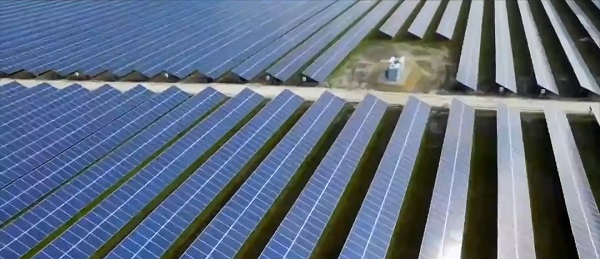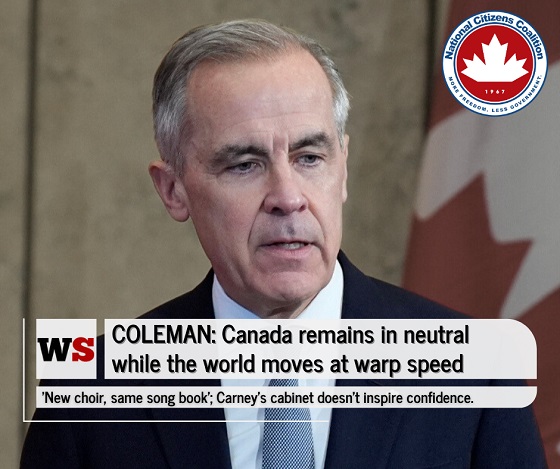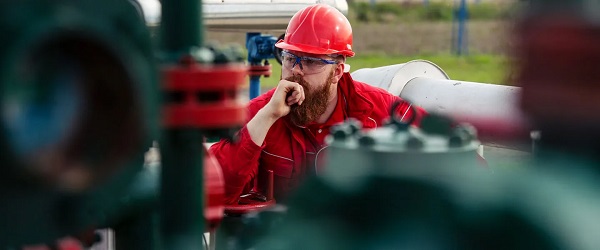Uncategorized
Trump to meet with Democrats about border wall, shutdown

WASHINGTON — President Donald Trump and Democratic congressional leaders are seeking to avert a partial government shutdown amid a sharp dispute over Trump’s border wall and a lengthy to-do list that includes a major farm bill and a formal rebuke of Saudi Arabia for the slaying of journalist Jamal Khashoggi.
Trump is set to confer Tuesday at the White House with House Democratic leader Nancy Pelosi and Senate Democratic leader Chuck Schumer ahead of a Dec. 21 deadline to shut down a range of government agencies.
“Republicans still control the House, the Senate and the White House, and they have the power to keep government open,” Pelosi and Schumer said in a joint statement Monday.
“Our country cannot afford a Trump Shutdown,” the Democrats said, adding that Trump “knows full well that his wall proposal does not have the votes to pass the House and Senate and should not be an obstacle to a bipartisan agreement.”
Republican congressional leaders have repeatedly said it’s up to Trump to cut a deal with Democrats, an acknowledgment of their own inability to produce spending bills with Republican votes alone.
That gives Democrats some momentum heading into the closed-door talks, which also could veer into Trump’s request for emergency funding for deadly wildfires in California and a Republican-sponsored bill to extend expiring tax breaks and delay some health care taxes.
Before lawmakers adjourn for the year they also may consider a bipartisan criminal justice reform bill, a bill to protect special counsel Robert Mueller and a plan to overhaul the system for handling sexual harassment complaints on Capitol Hill.
By far the biggest unresolved issue is the border wall. Trump wants the next funding package to include at least $5 billion for it, an idea Democrats have flatly rejected.
Pelosi and Schumer have urged Trump to support a bill that includes a half-dozen government funding bills largely agreed upon by lawmakers, along with a separate measure that funds the Department of Homeland Security at current levels through Sept. 30. The homeland bill includes about $1.3 billion for fencing and other security measures at the border.
If Trump does not agree to that, Democrats will likely urge a continuing resolution that funds all the remaining appropriations bills at current levels through Sept. 30, an aide said. The aide was not authorized to discuss strategy by name and requested anonymity.
Trump said Friday that Congress should provide all the money he wants for the wall and called illegal immigration a “threat to the well-being of every American community.”
At an appearance in Kansas City, Missouri, Trump accused Democrats of playing a political game and said it was one he ultimately would win.
“I actually think the politics of what they’re doing is very bad for them,” Trump said of Democrats. “We’re going to very soon find out. Maybe I’m not right. But usually I’m right.”
Pelosi, who is seeking to become House speaker in January, said she and many other Democrats consider the wall “immoral, ineffective and expensive” and noted that Trump promised during the 2016 campaign that Mexico would pay for the wall, an idea Mexico has repeatedly rejected.
Protecting borders “is a responsibility we
Schumer said Democrats want to work with Trump to avert a shutdown, but said money for border security should not include the concrete wall Trump has envisioned. Instead, the money should be used for fencing and technology that experts say is appropriate, Schumer said.
“We do not want to let a Trump temper tantrum govern our policies or cause the shutdown of a government, which everyone on both sides of the aisle knows is the wrong idea,” Schumer said. If Trump “wants to shut down the government over Christmas over the wall, that’s his decision,” he said.
Vermont Sen. Patrick Leahy, the top Democrat on the Senate Appropriations Committee, said Trump was all that stands between fully funding the government and a shutdown.
“Time and again, President Trump has used the government of the American people as a bargaining chip for his fabricated solution to his manufactured crisis,” Leahy said Monday in a Senate speech.
Trump “wants to score a made-for-reality-TV moment and he doesn’t care how many hardworking Americans will suffer for it,” Leahy said. “This is not about border security. This is about politics, pure and simple.”
But House Majority Whip Steve Scalise, R-La., said Democrats were the ones playing politics.
Trump “wants to secure the border. He got elected president on that platform,” Scalise told Fox News Channel.
If there’s a better way to secure the border than the $5 billion plan Trump has laid out, Democrats “need to come with an alternative,” Scalise said Monday. “They can’t come and say they want to shut the government down for no reason because they don’t want border security. They’ll lose that argument with the American people.”
Senate Appropriations Chairman Richard Shelby, R-Ala., said Monday he does not believe Trump or Democrats want to shut the government down.
“When I was with him the indication was he didn’t want to shut the government down, but he did want his wall,” Shelby said.
___
AP Congressional Correspondent Lisa Mascaro contributed to this report.
Matthew Daly, The Associated Press
Uncategorized
Poilievre on 2025 Election Interference – Carney sill hasn’t fired Liberal MP in Chinese election interference scandal

From Conservative Party Communications
“Yes. He must be disqualified. I find it incredible that Mark Carney would allow someone to run for his party that called for a Canadian citizen to be handed over to a foreign government on a bounty, a foreign government that would almost certainly execute that Canadian citizen.
“Think about that for a second. We have a Liberal MP saying that a Canadian citizen should be handed over to a foreign dictatorship to get a bounty so that that citizen could be murdered. And Mark Carney says he should stay on as a candidate. What does that say about whether Mark Carney would protect Canadians?
“Mark Carney is deeply conflicted. Just in November, he went to Beijing and secured a quarter-billion-dollar loan for his company from a state-owned Chinese bank. He’s deeply compromised, and he will never stand up for Canada against any foreign regime. It is another reason why Mr. Carney must show us all his assets, all the money he owes, all the money that his companies owe to foreign hostile regimes. And this story might not be entirely the story of the bounty, and a Liberal MP calling for a Canadian to be handed over for execution to a foreign government might not be something that the everyday Canadian can relate to because it’s so outrageous. But I ask you this, if Mark Carney would allow his Liberal MP to make a comment like this, when would he ever protect Canada or Canadians against foreign hostility?
“He has never put Canada first, and that’s why we cannot have a fourth Liberal term. After the Lost Liberal Decade, our country is a playground for foreign interference. Our economy is weaker than ever before. Our people more divided. We need a change to put Canada first with a new government that will stand up for the security and economy of our citizens and take back control of our destiny. Let’s bring it home.”
Uncategorized
Canada Needs A Real Plan To Compete Globally

From the Frontier Centre for Public Policy
Ottawa’s ideological policies have left Canada vulnerable. Strategic action is needed now
As Canada navigates an increasingly complex geopolitical landscape, the next federal government must move beyond reflexive anti—Americanism regardless of its political leanings. Instead, Canada should prioritize national interests while avoiding unnecessary conflict and subservience.
The notion that Canada can stand alone is as misguided as the idea that it is only an economic appendage of the United States. Both perspectives have influenced policy in Ottawa at different times, leading to mistakes.
Rather than engaging in futile name-calling or trade disputes, Canada must take strategic steps to reinforce its autonomy. This approach requires a pragmatic view rooted in Realpolitik—recognizing global realities, mitigating risks, governing for the whole country, and seizing opportunities while abandoning failed ideologies.
However, if Washington continues to pursue protectionist measures, Canada must find effective ways to counteract the weakened position Ottawa has placed the country in over the past decade.
One key strategy is diversifying trade relationships, notably by expanding economic ties with emerging markets such as India and Southeast Asia. This will require repairing Canada’s strained relationship with India and regaining political respect in China.
Unlike past Liberal trade missions, which often prioritized ideological talking points over substance, Canada must negotiate deals that protect domestic industries rather than turning summits into platforms for moral posturing.
A more effective approach would be strengthening partnerships with countries that value Canadian resources instead of vilifying them under misguided environmental policies. Expand LNG exports to Europe and Asia and leverage Canada’s critical minerals sector to establish reciprocal supply chains with non-Western economies, reducing economic reliance on the U.S.
Decades of complacency have left Canada vulnerable to American influence over its resource sector. Foreign-funded environmental groups have weakened domestic energy production, handing U.S. industries a strategic advantage. Ottawa must counter this by ensuring Canadian energy is developed at home rather than allowing suppressed domestic production to benefit foreign competitors.
Likewise, a robust industrial policy—prioritizing mining, manufacturing, and agricultural resilience—could reduce dependence on U.S. and Chinese imports. This does not mean adopting European-style subsidies but rather eliminating excessive regulations that make Canadian businesses uncompetitive, including costly domestic carbon tariffs.
Another key vulnerability is Canada’s growing military dependence on the U.S. through NORAD and NATO. While alliances are essential, decades of underfunding and neglect have turned the Canadian Armed Forces into little more than a symbolic force. Canada must learn self-reliance and commit to serious investment in defence.
Increasing defence spending—not to meet NATO targets but to build deterrence—is essential. Ottawa must reform its outdated procurement processes and develop a domestic defence manufacturing base, reducing reliance on foreign arms deals.
Canada’s vast Arctic is also at risk. Without continued investment in northern sovereignty, Ottawa may find itself locked out of its own backyard by more assertive global powers.
For too long, Canada has relied on an economic model that prioritizes federal redistribution over wealth creation and productivity. A competitive tax regime—one that attracts investment instead of punishing success—is essential.
A capital gains tax hike might satisfy activists in Toronto, but it does little to attract investments and encourage economic growth. Likewise, Ottawa must abandon ideological green policies that threaten agri-food production, whether by overregulating farmers or ranchers. At the same time, it must address inefficiencies in supply management once and for all. Canada must be able to feed a growing world without unnecessary bureaucratic obstacles.
Ottawa must also create an environment where businesses can innovate and grow without excessive regulatory burdens. This includes eliminating interprovincial trade barriers that stifle commerce.
Similarly, Canada’s tech sector, long hindered by predatory regulations, should be freed from excessive government interference. Instead of suffocating innovation with compliance mandates, Ottawa should focus on deregulation while implementing stronger security measures for foreign tech firms operating in Canada.
Perhaps Ottawa’s greatest mistake is its knee-jerk reactions to American policies, made without a coherent long-term strategy. Performative trade disputes with Washington and symbolic grandstanding in multilateral organizations do little to advance Canada’s interests.
Instead of reacting emotionally, Canada must take proactive steps to secure its economic, resource, and defence future. That is the role of a responsible government.
History’s best strategists understood that one should never fight an opponent’s war but instead dictate the terms of engagement. Canada’s future does not depend on reacting to Washington’s policies—these are calculated strategies, not whims. Instead, Canada’s success will be determined by its ability to act in the interests of citizens in all regions of the country, and seeing the world as it is rather than how ideological narratives wish it to be.
Marco Navarro-Génie is the vice president of research at the Frontier Centre for Public Policy. With Barry Cooper, he is co-author of Canada’s COVID: The Story of a Pandemic Moral Panic (2023).
-

 Economy2 days ago
Economy2 days agoCanada as an energy superpower would empower thousands of families for generations
-

 Alberta2 days ago
Alberta2 days agoBoreal forests could hold the key to achieving Canada’s climate goals
-

 Addictions2 days ago
Addictions2 days agoNews For Those Who Think Drug Criminalization Is Racist. Minorities Disagree
-

 Health2 days ago
Health2 days agoWHO assembly adopts ‘pandemic agreement’ binding countries to unified response
-
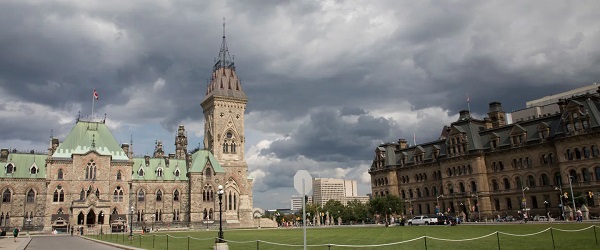
 Business2 days ago
Business2 days agoCarney’s cabinet likely means more of the same on energy and climate
-

 COVID-192 days ago
COVID-192 days agoFDA plans to require placebo trials before approving COVID boosters for healthy people
-

 Banks1 day ago
Banks1 day agoLegal group releases report warning Canadians about central bank digital currencies
-
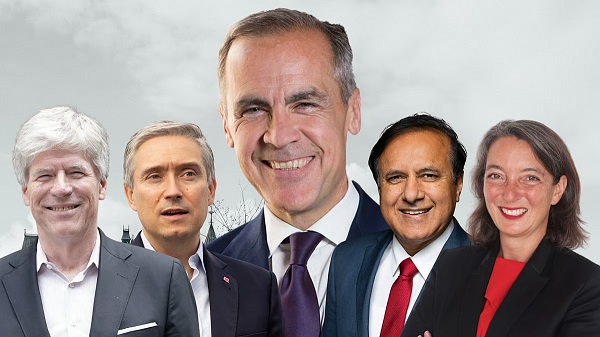
 Business1 day ago
Business1 day agoThe Liberal war on our cost of living lives on
